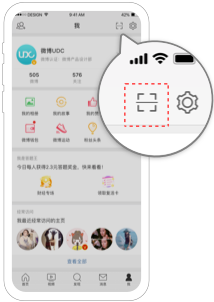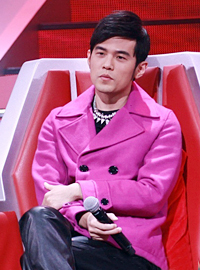更多择校信息请关注新浪国际学校官方微信号:国际学校家长圈(ischoolQZ)。
蓝湾未来领导力学校(Future Leadership Academy at Blue Bay,FLA)是一所涵盖3-18岁全学段的全日制非营利学校。 2018年1月8日,新浪教育“国际教育大咖说”特别邀请到了蓝湾未来领导力学校的中方校长石国鹏先生和外方校长 Robin Lewis博士做客新浪。两位校长向我们介绍了蓝湾未来领导力学校的办学特色,并对家长和学生们关心的国际教育理念、师资等问题进行了回答。
世界名校院长为何选择中国
外方校长 Robin Lewis博士曾担任哥伦比亚大学国际公共事务学院的执行院长,作为一位世界名校院长,他有着丰富的办学经验和先进的教育理念,并且为世界各国的政府和国际组织培养出许多优秀的领导人才。那他为何决定来中国创立蓝湾未来领导力学校呢?
Robin Lewis博士表示教育全球化为各国学生提供了很好的学习交流的机会,中国在各方面也正在步入世界领先地位,而且对外国学生来说,在未来从事与中国相关的事业将会很重要。同时,中国人尊重学习、教育和教师的品质也吸引了他。
 Robin Lewis博士
Robin Lewis博士K12教育和大学教育同等重要
Robin Lewis博士虽然有着丰富的大学教育的经验,但涉足K12教育却是头一次,他开玩笑说:“我没当过K12学校校长,很多年前当我还是大学生时,我倒是教过小学三年级的学生,所以还是有一定经验的。”
为什么要转入K12教育?Robin Lewis博士很郑重地表达了自己的观点:大学教育很重要,但要想引领未来,必须在更早的年纪就进行相关教育。他认为孩子们应该尽早学习不同的语言,了解不同的文化,同时在全球化的环境中理解本国的文化,这一过程,需要贯穿幼儿园到高中,这样当他们读大学时,将会拥有更多的资源和能力,如果仅仅是把重心和资源放在大学教育上,那么早期的教育和高等教育之间将存在巨大的鸿沟。
中外校长珠联璧合 整合全球化教育资源
作为蓝湾未来领导力学校的校长之一,石国鹏先生有着丰富的中学教育经验,并希望将自己的教育理念延伸到初中、小学甚至是幼儿园。他认为孩子从3岁到18岁要打下完整而良好的教育基础,为接受更高等的教育做准备,成为世界顶尖大学所需要的人才。这种对基础教育与高等教育之间的衔接的看法与Robin Lewis博士不谋而合,两人可谓一见如故。
 石国鹏校长
石国鹏校长石校长认为蓝湾未来领导力学校要实现国际化教育就需要一位德才兼备且经验丰富的世界级大学的教育者,Lewis校长在整个世界顶级的高等教育范围内,有着丰厚的人脉关系和社会资源,他的加入无疑为这所学校带来了全球化的教育资源。
Robin Lewis博士在哥伦比亚的学生们来自世界各地,他曾带领他们进入企业、政府机构和民间机构实习,这样可以持续地让学生与世界交流,而不是把自己关在教室内听讲,让他们能更积极主动地自我教育,整合所学的知识与技能。
教师应把教育当作神圣使命来培养未来领袖
在学校管理上两位校长采取优势互补的原则,石校长负责学校的整体教育理念和教育教学的管理,而Lewis校长更多是代表学校对海外发声、引进资源。Lewis校长还会担任一门课程的教师,他认为教育者必须走进课堂。可见对于教师这个角色,他有着自己独到的看法:教师需要热忱、诚实并且热爱这份工作,把教育当作是人生的使命。因此蓝湾未来领导力学校要选择的教师不仅拥有一纸文凭,同时还要有个性、有雄心。
 两位校长
两位校长而石校长在北京四中的工作经历使他理解到真正的教育是“以人育人”,老师应该和学生一起追寻真理,追寻成长,用自己的生命点燃学生,启发激励学生,然后一起向着正确的方向前进。
同时两位校长对孩子们的未来给予了厚望,都表示希望蓝湾未来领导力学校的学子将来被培养成为“未来引领者”,能够为世界提供有价值的贡献,这也是学校之所以叫“未来领导力学校”的原因。
蓝湾未来领导力学校的发展之路
对于蓝湾未来领导力学校未来的规划两位校长从三方面分别作了解答:
教学模式上,Lewis校长希望创造一个独特的世界级学校,形成一种可复制和传播的教学模式,让中国的其他地方也能受益。
教育体系上,将通过提供一些独特的课程,例如“双母语”教学模式、领导力与企业家精神课程和海洋课程来培养学生的语言能力、沟通能力等等。
教育概念上,他们主张坚持本土化的国际教育。那什么是本土化的国际教育呢?石校长认为就是要把中华民族传统文化当中的人文主义精神与国际教育当中的优秀科学精神、科学方法、科学理念加以完美的融合,使它们能够共生,能够共同地作用于中国的教育和世界的教育。而且本土化与国际化并不矛盾。只有坚守了本民族优秀的文化传统,并敞开胸怀去拥抱国际教育当中最优秀的元素,才能推动中国教育的进一步发展。
结语
通过对蓝湾未来领导力学校两位校长的采访,我们对这所国际学校有了更深刻和清楚的认识,也希望两位大咖的教育理念能为中国教育的国际化发展起到良好的借鉴作用。
此外,蓝湾未来领导力学校将会在今年9月正式开学,学校官网(http://www.flacademy.cn/ )和官方微信公众号“蓝湾未来领导力学校”开通后,受到了全国各地家长的关注。2月5日和18日,学校会在海南举办信息发布会,两位校长及课程专家们将会为家长揭示这所学校核心课程的奥妙之处。
 蓝湾未来领导力学校
蓝湾未来领导力学校以下为本次访谈的文字实录:
主持人:各位新浪网友的观众朋友们大家好,欢迎大家关注新浪《国际教育大咖说》。
今天我们有幸请到两位重量级的嘉宾,他们是蓝湾未来领导力学校的两位校长,首先是中方校长石国鹏先生。
石国鹏:各位网友大家好。
主持人:接下来是Dr.Robin Lewis,他是外方校长。
Dr.Robin Lewis:大家好
一、世界名校院长为何选择中国
主持人:Robin Lewis博士,我知道您曾在1985到2007年担任哥伦比亚大学国际公共事务学院的执行院长并且为世界各国的政府和国际组织培养出许多优秀的领导人才。所以我想请问您为何决定来中国创立蓝湾未来领导力学校呢?
Dr.Robin Lewis:原因很多,首先是因为全球化,教育也受全球化影响,中国也从中受益并且也做出了自己的贡献。因此我们学校不仅会给中国学生提供教育机会也会让外国学生来参观学习,更好地了解中国文化和中国的学习方式,并从中受益。
第二个原因,目前中国在很多方面正在步入世界领先地位,尤其是在发展和气候变化方面,因此急需让中国学生接受新的教育方式从而让他们引领时代变化,成为有中国特色的世界公民和专业人才。另外,对于那些来这里的外国学生,这样能增强他们和中国的互动,因为未来从事与中国相关的事业将会很重要。
第三个原因,是我的个人原因,因为我已经在中国工作生活了多年,所以我对这里的人和文化都比较熟悉。我认为在中国比较独特的一点是,人们尊重学习、教育和教师,这在全世界都是很特别的,所以能在这种环境下成为一个教育从业者,能在蓝湾未来领导力学校工作,我很荣幸。
二、K12教育和大学教育同等重要
主持人:谢谢您的回答,那么下一个问题,我们都知道您过去的经验主要是在大学教育方面,您能分享一下之前的经验么?
Dr.Robin Lewis:大学教育是非常重要的,在美国我们有非常成熟的高等教育系统,学生有多样化的选择,他们有机会进入各种不同的大学或学校。在中国,高等教育也变得国际化,美国大学有很多国际学生,其中中国学生最多。我也曾多次参与中美以及其他国家的学生交换,这样的思想交流、人才和教师交换非常重要,因为全球化的发展意味着你不能把自己和世界其他国家隔离开。
主持人:您为什么会转入K12教育呢?您之前曾在K12学校当过校长么?
Dr.Robin Lewis:我没当过K12学校校长,很多年前当我还是大学生时,我倒是教过小学三年级的学生,所以还是有一定经验的。
但我要说的是,跟我的许多大学教师同事一样,当我们看到大学教育的重要性同时,我们也深信,要想引领未来,必须在更早的年纪就进行相关教育。孩子们应该尽早学习不同的语言,了解不同的文化,同时在全球化的环境中理解本国的文化,这种教育需要尽早开始。同时这也是一个持续的学习过程,需要贯穿幼儿园到高中,这样的话,当他们读大学时,将会拥有更多的资源和能力,他们不仅可以使用图书馆、教育设施来学习,而且还能从其他学生和老师身上学到更多,从中受益。如果你仅仅是把重心和资源放在大学教育上,那么早期的教育和高等教育之间将存在巨大的鸿沟。
主持人:您对中国学生有什么了解?您如何能在中国的学校成为一名出色的校长?
Dr.Robin Lewis:我希望通过和石校长,还有蓝湾未来领导力学校卓越的管理团队的合作,成为一个优秀的校长。我曾参与过几乎所有学段的中国学生的管理工作,也在中国的学校和大学发表过讲话,并且我的家人和朋友也都在中国,因此我希望把我个人全球化的资源带到中国。我也会继续学习,不会停止,因为学习是贯穿一生的过程,我们都该参与其中。我会通过这样的方式努力做一个优秀的校长。
三、全球化的教育资源
主持人:您为何会选择加入蓝湾未来领导力学校和石校长以及管理团队合作呢?
Dr.Robin Lewis:当我第一次了解到蓝湾未来领导力学校的设计初衷,见到石校长,与他和他的团队详谈时,我发现我们的教育理念在很大程度上都有相似之处。我们都认为教育应当是互动的,通过采用不同的新的教学方法让学生积极参与其中,进行项目式学习。 因此很快就喜欢上了蓝湾未来领导力学校。
另外,像我刚刚提到的,我也渴望在中国的K12教育创新中扮演重要的角色,同时也学习中国教育的过人之处。
主持人:您会为学校带来什么?
Dr.Robin Lewis:我能为这所学校带来全球化的资源,不仅仅是课堂上的,也包括课堂以外的教育资源。我在哥伦比亚的学生们来自世界各地,我曾带领他们进入企业、政府机构和民间机构实习。我们在蓝湾未来领导力学校里也会这样做,不仅仅局限在中国,而是全世界范围内,因为学生可以在多样的环境中学习,这可以帮助学生强化他们在课堂上所学的知识。同时,可以持续地让学生与世界交流,而不是把自己关在教室内听讲,也让他们能更积极主动地自我教育,整合所学的知识与技能。
主持人:我想问一下石校长,您为什么会选一位美国顶级大学的教授和院长来担任外方校长?您觉得Robin Lewis博士会为学校带来什么呢?
石国鹏:好的,我一直从事中学教育。在我参与小升初和初升高的录取工作的时候,我常常有一个奢望,就是希望我能把我对于教育的理解延伸到初中、小学甚至幼儿园去。同样的道理,我们的学生从3岁到18岁,在蓝湾未来领导力学校里受的是完整的基础教育,而他们毕业以后要到世界范围内的顶级大学或者学院里面去接受高等教育。对于这些学生来讲,我们这个阶段就是他们的基础教育或者正规教育开始的时候,而大学一直到博士阶段可能是他们正规教育的结束的时候。我们向大学输送人才,需要来自大学的资深教授和行政管理专家,来给我们一些理念上的指导,来分享什么才是世界上最顶级的大学所最需要的学生。从这个角度来看,在选聘外方校长的时候,我们特别注重能够选一位德才兼备而且经验丰富的顶级大学的教育家。很幸运,我们认识了Dr. Robin Lewis,我们在交谈的过程当中可以说是一见如故、相谈甚欢,彼此之间对教育的认识,对中等教育或者基础教育与高等教育之间的衔接,都有着近乎于完全相同的看法。所以,我们特别开心能够请到Dr. Robin Lewis加入到我们的管理团队。
在我看来,Lewis校长将代表学校向世界发声。学校是要在全世界范围内获得它的声誉,而这个声誉源自于我们的努力,源自于我们共同的工作。
学校的发展也离不开来自全世界最顶级的资源,而Lewis校长在整个世界顶级的高等教育范围内,有着丰厚的人脉关系和社会资源,他会把这些资源带到学校里面来。
所以,从这个角度来看,我们聘请Lewis教授来作为我们的外方校长,实际上是符合双方最根本的愿望,对教育的理解和我们未来发展的美好的梦想。
主持人:谢谢您。
四、两位校长的职责划分
主持人:Lewis博士作为校长之一,您如何划分自己的职责呢?
Dr.Robin Lewis:一方面,我会主要代表学校处理国际事务,特别是和大学招生录取相关的事务。但同时,我也会走进课堂,作为教师给学生上课,因为如果你不给学生上课的话,就不是一个真正的教育者。
另一方面,石校长作为中方校长主要负责学校的运营管理,在一所中国的学校由中方校长来负责这些更合适。我认为我们能够充分互补,不仅仅是因为我们的经历和个性互补,更重要的是我们对于蓝湾未来领导力学校的未来发展有着一致的观点。我相信这样的职责分配会对学校很好。
主持人:同样的问题我想问一下石校长,您是如何区分两位校长的不同职责?是根据不同的区域或者不同的业务来区分的吗?
石国鹏:可以这样说吧,因为我们是分工合作的关系,我更主要是在国内,在学校里面执行它的整体教育理念和教育教学的管理。而Lewis校长更多是代表学校对海外发声、引进资源。
另外,我们俩之间还有一个密切配合的一点。在学校里面有一门贯通型课程,从幼儿园到高中都要上,我们叫它“领导力与企业家精神”课程。这个课程对于我们来讲是至关重要的,因为它跟学校的名字息息相关,跟我们学校的基本理念也是息息相关的。
Lewis博士将担任我们整个“领导力与企业家精神”课程设计组的组长,我、葛校长和另外几位资深的专家、老师,会在这个组里面共同担任设计师。在高中阶段的领导力课程,Lewis博士还会直接执教。我们这个课程的整体的设计、实施过程中,应该说有很多合作空间。
五、教师应把教育当作神圣使命来培养未来领袖
主持人:您如何看待教师这个角色?您在选择教师时会首先考虑什么?
Dr.Robin Lewis:这个问题很重要,问得很好。在我看来,当我回想起自己过往接受的教育时,我能回想起来的是那些鼓舞人心的老师们,他们教会我很多其他人无法教会我的事情,我的朋友也都认同我的看法。
所以,蓝湾未来领导力学校需要那些能够鼓舞学生的教师们,需要那些把教导年轻人当作是一项神圣使命的教师们。我们需要热忱、诚实并且热爱这份工作的教师。不幸的是,世界上许多学校的老师都只是简单把教师的工作看作是来学校消磨时间的职业。而在蓝湾未来领导力学校,我们现在所拥有的教师和未来希望雇佣的教师是与众不同的,他们会把教育当作是人生的使命,比其他一切事情都更重要,他们会把这样的信念带进教室,传递给学生,会尽一切可能鼓励、教导学生,并把教育当作是给学生一生的礼物。我们希望蓝湾未来领导力学校的教师们不仅拥有一纸文凭,同时还要有个性、有雄心能够和我们一起工作,要知道,我们不仅仅是一个教育机构,我们是一个需要人人参与、共同合作的学习型社区,这一点非常重要。
主持人:那么关于学生,您希望什么样的学生进入您的学校?您是否想象过,他们从蓝湾未来领导力学校毕业时会成为什么样的人?
Dr.Robin Lewis:我们想要那种希望通过改变自己来改变世界的学生。早期想要发现学生的天赋是比较困难的,但幸运的是我们有一支富有经验的教师团队能帮助学生找到自己的天赋。所以我们希望招收那些想要在未来有所作为,认同并且想要加入蓝湾未来领导力学校的学生们。作为一个学习型社区,我们希望学生家长也能够参与到学习活动当中,我们所提供的丰富的学习资源不仅惠及学生,同时也将惠及校外的社区。
关于学生的未来,我们希望培养出新一代的世界公民和专家,能够为世界提供有价值的贡献。我们希望我们培养的中国学生能够有中国特色同时具有国际化的视野来面对未来人类所面对的挑战。特别是一些比较棘手的问题,我们希望培养出能够解决这些问题的学生。当今世界正在面对越来越多的问题,急需新的富有创造力的解决方法,我们希望我们提供的教育方式和资源能让我们的学生去解决这些问题,并且为全球的繁荣发展带来新的贡献。
主持人:石校长怎么看呢?
石国鹏:对于老师来讲,我有这样一些想法。我曾经在北京的几所顶级名校工作过,但是对我影响最深的是北京四中。在北京四中我工作了14年时间,可以说我人生当中或者我职业生涯当中重要的营养来自于这所在我看来是教育圣殿的学校。北京四中在强调师资的质量、师资的培训的时候,他特别会强调教师的职责是以人育人。我理解以人育人这个词,看似简单,但实际上非常非常难,因为它不仅仅是教你知识,不仅仅是管理,不仅仅是给你一些我们日常所想到的教育教学,更重要的是他鼓励甚至要求老师跟学生一起成长。老师用自己的生命去点燃学生,去启发激励学生,然后一起向着正确的方向去前进。
举个例子来讲,当我们强调“大阅读”概念的时候,很多四中老师的阅读量是我所敬佩的。我有一个师兄,是北京四中的特级历史教师赵利剑老师,那是我心中的偶像,赵老师每年平均读书量应该是100-150本左右,也就是他平均每2到3天就要读一本书,他几乎是手不释卷的感觉。这样的人,他对学生去讲要“大阅读”的时候,他的说服力是非常之强的。其它的方面还有很多很多。
总之,我们希望我们的老师是能够跟学生一起去追寻真理,去追寻成长的。因为终身学习不仅仅是我们要教给学生的,其实很多时候也是学生要教给我们的。
对于学生来讲,我希望我们的孩子在未来被培养成为“未来引领者”,因为学校叫未来领导力学校,希望他们能够是引领未来的人。引领未来是需要一些条件的,我们在引领未来前面又强调了“觉解身心”这四个字。我理解什么叫“觉解身心”呢?一个是Enlightened,另外一个叫Empowered。Enlightened就是启蒙的,是思想觉悟的,学生要在智慧上,在思维水平上达到一个受过良好教育的人应该有的程度。而Empowered就是说他们要被赋予权力的,要权责兼备。在这种情况下,孩子们首先要赋予自己一个健康的身体和心理。如果没有一个健康的体魄,他是很难承担自身在这个世界上立足的任务,更不要去提引领他人走出某种困境。所以,他要是身心健康的,他要是一个有这种强大的能力和愿望去帮助别人,去引领别人的人。
所以,从各个方面来讲,我们希望孩子们经过一个比较长的时段,在蓝湾未来领导力学校里学习的过程中,他能够发展成为一个有趣的人,一个丰富的人,一个有思想、有灵魂而且有愿望去改变这个世界的人。
主持人:谢谢您。
六、蓝湾未来领导力学校的发展之路
主持人:Lewis校长您能谈谈蓝湾未来领导力学校未来的规划么?
Dr.Robin Lewis:当然,我们会努力认真地让蓝湾未来领导力学校逐渐发展成一所优秀的学校。中国是一个非常大的国家,和世界上许多地方一样,中国有很多学生需要更优质的教育资源。当今在中国也有很多正在进行的教育项目,未来5年里企业会创办更多学校。但我们不一样,我们想在蓝湾创造一个独特的世界级学校,培养出一小批但是非常优秀的世界级人才,他们将对世界作出重要贡献。
我们不会急于求成,我们是一所非营利学校,所以我们不是为了挣钱而来的,不需要大量招生。我们只想做我们认为对的事,这是很重要的。
长期来看,我们希望能够创造一种可复制和传播的教学模式,让中国其他的地方也能受益,但是目前我们专注于在海南做这件事。
七、多样化的教育体系
主持人:学校有特殊的教育体系么?
Dr.Robin Lewis:不仅仅是一种教育体系,我们的课程包含许多种不同的教育方式。比如我们有独特的数学教育方式和“双母语”教学模式,帮助学生在更小的年纪专注于中文和英文的同步学习。
在中学阶段,我们会提供一些独特的课程,这些课程中国其他学校都没有。一个是未来赋能课程,通过运用科技发展学生的能力,更有效地与人交流沟通。另一个是领导力与企业家精神课程,我本人也会与团队教师一起直接参与到课程的设计中,这门课程将帮助学生提升领导力的意识与能力,并且了解企业家精神。通过这些课程我们要告诉学生,想要做一个优秀的领导者,先要从个人做起,领导自己。
第三个课程非常独特,是海洋课程,我们将会利用我们独特的地理优势——南海,以海洋为课堂,让学生有机会持续了解有关海洋的科学、技术、社会、政治问题,也让他们知道保护海洋对人类的未来多么重要。这些都是我们所独有的教育体系的一部分。
八、坚持本土化的国际教育
主持人:我想问一下石校长,您能谈一谈什么是本土化的国际教育吗?
石国鹏:本土化的国际教育是我们所主张的一个概念。在我们做国际化教育的时候,很容易想到对外开放这件事。向国际敞开大门、敞开胸怀,去拥抱世界上最先进的经验,这是我们应该做的事情。
我记得应该是在80年代初的时候,改革开放的总设计师邓公就曾经给教育提出三个面向:面向现代化、面向世界、面向未来,这就是给教育吹响了一个对外开放的号角,让我们去拥抱世界上最先进的教育教学的理论、方法和实践。同时我们也知道,如果我们只是打开大门,让外面的东西涌进来,而同时我们不关注自己本民族的文化,不关注自己本民族的民族认同,这将是得不偿失的。
所以,我们在做国际教育的同时特别考虑这样一个问题,对于中国孩子的向外走,我们是不是要有一定的准备?这个准备是什么呢?在我看来,就是用本土化的国际教育来帮助孩子们打好基础。
我记得在十九大报告里,习近平总书记明确提到,增强我们的文化自信、创设我们中国的文化繁荣,是中华民族实现伟大复兴的关键节点。从这个角度来看,事实上我们的民族认同或者说民族传统文化的教育已经成为中华民族复兴梦想的最核心的组成部分之一了。我们作为教育工作者,是不可以掉以轻心的,必须深刻地去领悟、去体会、去实践。
说到本土化的国际教育的概念,我认为我们需要深入地去探索、去研究中华传统文化当中人文主义精神的传统,我们优秀的文化传统里有很多是和世界最先进的文化是相符合的,并不是说中国传统的就都是糟粕,我们有太多太好的优秀传统应该被传承。不但我们要继承,还应该传播到全世界去。
所以,我理解本土化的国际教育,如果从概念上讲,就是要把中华民族传统文化当中的人文主义精神在与西方或者说是国际教育当中的优秀的科学精神、科学方法、科学理念加以完美的融合,使它们能够共生,并且能够产生化学反应,能够共同地作用于中国的教育和世界的教育。
这就是我们的想法。
主持人:有的人可能会想,本土化的教育可能会更偏向内敛一些,而国际化的教育是更开放。这两者之间是否具有先天性的冲突呢?
石国鹏:这是有偏见的。本土化给人感觉好像是内敛的,但是请不要忘了,我们从国际的角度来讲,国际是什么?或者世界是什么,世界是由一个一个国家组成的、一个一个民族组成的,国际是这些民族、这些国家之间的关系,而它是由一个一个本土组成的。对吗?那么本土本身就是国际的根本,就是国际的源头,没有本土就没有国际。所以,从这个角度来看,我希望把本土和国际这两个概念对立起来的人们应该重新去设定一下自己的思维角度。
我们举一个例子来讲,在我们现在的语境里边,本土化实际上就是中华民族的民族认同和文化自信,这是无可争议的。
中华民族几千年来的优秀传统文化,它是不是封闭的?它是不是所谓的内敛到不能对外开放或者与国际化相矛盾呢?恰恰相反,因为我是学历史的,我太清楚这里面的过程。我们的中华文化在它发展的几千年过程中,是56个民族不断融合的过程,它并不是汉族一个民族创造的,而汉族本身也是无穷多民族融合而成的,民族融合从古至今一直就没有停止过,直到今天中华民族这个概念被我们广泛应用的时候,各位的户口本上没有一个写的是中华民族,您是五十六分之一,对不对?
从这个角度可以看出来,我们的民族融合,我们文化的包容性一直是在路上的。
另外,如果我们谈到中国文化象征性的人物,可能大家都会同意是孔子。孔子的教诲里有一句话叫君子和而不同。和而不同,不是要把天下所有的东西都统一成儒家思想、中国文化或者统一成某种文化,真正的君子在孔夫子看来是能够善待那些不同,把它们包容在一起的人。而中国文化最大的优势、最大的特征其实就是开放和包容。我们举唐朝的历史来看,大家都知道唐朝是中国古代最辉煌的时候,可以说直到今天我们还把海外的华人叫唐人,这些海外的中国城叫“唐人街”。唐代的开放是令人瞠目结舌的,比如说他的宰相级的人里是有外籍的,外国人可以在中国参加进士考试,可以做官,可以经商,可以从政,可以基本上享受国民待遇。比如像日本、新罗,可以派大量的留学生在中国学习博大精深的中华文化,并带回去。这些在今天可能都不容易完全实现。但是我们看到中华民族的古代,当我们的文化最自信的时候,我们对世界展现出来的是怎样的胸襟和气魄?那个时候中国难道不是本土化的吗?
所以,从历史的角度,从现实的需求,我们都可以得出这样的结论,本土化与国际化并不矛盾。只有坚守了我们本民族优秀的文化传统,并敞开胸怀去拥抱国际教育当中最优秀的这些元素,我们才能形成一个在21世纪能够推动中华民族更加完善、更加发达的雄厚的力量。
主持人:好,感谢两位校长的回答。我们今天的国际教育大咖说到这里就要结束了,我们也希望蓝湾未来领导力学校越办越好,我们会持续关注这所学校,给大家带来更多关于这所学校的信息。
石国鹏:谢谢,谢谢各位!
附:主持人英文提问及翻译
主持人:Dr. Robin Lewis, I knew you had been the associate dean of school of international public affairs at Columbia university from 1985 to 2007. And you have helped to cultivate hundreds of successful leaders for international groups and governments all over the world. I wonder why you decided to come to China and set up future leadership academy at blue bay?
RL: Well, there are a number of reasons. The first I would point to is globalization, that education is becoming globalized, and that China has great benefit to derive from this process and also has a great deal to offer to the rest of the world. So our school will be for Chinese students but also will bring in visiting foreign students so they can understand China better and can benefit from the treasures of Chinese civilization and Chinese culture and Chinese learning.
The second reason is that this is a very important moment in history when China is stepping into a leadership role in the world, particularly in development and climate change, and really this brings up an urgent need for Chinese students to get a new style of education that will enable them to be leaders of this change, who are really global citizens and global professionals with a strong Chinese identity. And similarly, the foreign students who come will be able to interact with China and have careers related to China that will be very important.
And the third reason, and it is a more personal reason, is that I have lived and worked in China for a number of years, so I am familiar with the culture and the people, but I think what is unique about China is its respect for learning and for education and for teachers, which is quite distinctive in the world—and this is a very good environment in which to be an educator, so I am very pleased to come here and to be able to work at the Future Leadership Academy at Blue Bay.
主持人:I see, thank you. Next question is that because we all know that your previous experience was mainly focusing on the university education. Could you share some experience about it in the U.S.? So I wonder why did you decide to transfer to k12 education? And have you got any experience of being a principle in a K12 school?
RL: University education is of course very important. In the US, we have a very well developed higher education system, with many choices, many different types of universities and schools that are accessible to students. As in China, higher education has been globalizing, and there are a very large number of international students studying in American universities now and of course the biggest group comes from China. So, I have been very involved in both China and the US in student exchanges, and also in other countries (such as the BRICS), and this kind of exchange—also of ideas, of people, of teachers—is very important, because globalization means that you cannot shut yourself off from the rest of the world.
RL: Well, no, I’ve never been a principal in a K-12 school, but a long time ago when I was an undergraduate, I did spend a year as a teaching assistant in a third-grade classroom, so I do have some classroom experience.
But what I would say is this: along with many of my university colleagues, while we see the importance of university education, we believe that the demands of the future for leadership mean that you must start at a much earlier age in order to be really effective. Children have to immediately begin learning to speak other languages, to understand different cultures-- and understand their own culture at the same time in a global context-- and that is a process that needs to begin as early as possible. And that needs to be a continuous learning process that goes from K or even pre-K to 12th grade, so that when students arrive at universities, which have huge resources, not just libraries and facilities, but above all human resources—teachers and other students— our students are able to benefit from them. I think that if you put all efforts and resources directly into universities, you have too much of a gap between early education and higher education.
主持人:What do you understand of Chinese students? How to make yourself a great principle in a Chinese school?
RL: Well, I hope to be a great principal by working with my friend Michael Shi and his terrific team, but because I have encountered Chinese students at all levels— and I have spoken at Chinese schools and universities, I have many friends in this country and even family here—I feel that I have something to contribute in China by bringing in my global experience. And also I want to keep learning, I never want to stop being someone who is constantly learning and in school, because that is a life-long process and we all have to part of that, no matter that we are important people in education.
主持人:Why would you join FLA at blue bay and work with Michael Shi and the administration team? What would you bring in to the school?
RL: I must say when I first saw the design for FLA and had a chance to meet Michael and talk to him and to his team at great length, I found that we were entirely on the same wavelength (as we say in America), we were broadcasting on the same frequency. So, with our shared views of education-- that it should be interactive, that it should fully engage students, that it should be project-based learning using different new types of pedagogy—I felt very comfortable immediately.
And it also fit, as I was saying earlier, my desire to play a role in China and to learn from China in helping to create a new educational model for K-12.
RL: I bring a great deal of global resources, not just in the classroom but also outside of the classroom. My students at Columbia were from more than 100 countries and I brought them into internships in companies, in government agencies, in civic organizations. We can do this at FLA, both in China and around the world, because there are many different settings in which students can learn and enhance what they get in the classroom. Their learning is a process of constantly being engaged in the world, not just locked into a classroom and being lectured to, but making students more active participants in their own education and in gathering their own knowledge and skills.
主持人:As one of the two principles of FLA, how do you define your responsibilities as one of the principles?
RL: On the one hand, my particular task is to represent the school in public and particularly internationally at universities that will be looking at our students for possible admission, but at the same time I will be several times a year in the classroom, actively involved as a teacher, because if you are not in the classroom, you are not in the game. So, I will also be doing that.
Michael, on the other hand, will be running the operations of the school. This is an appropriate role for a Chinese principal in a Chinese school, and I think that actually, we complement each other very nicely, not just in terms of our experience and personalities, but also in terms of our shared understanding of where we want to take FLA in Blue Bay in the future. I think this is an arrangement that will work very well.
主持人:What do you think of teachers’ role in a school? What factors will you consider first in terms of choosing a teacher?
RL: That is a very good question and a very important one. To my mind, both in my experience and when I speak to my friends they also agree, when I think back to my own education, what I remember most are inspiring teachers, who were very special and who taught me things that no one else could teach me.
So, at FLA we are looking for teachers who are inspiring, who see their role as a mission, almost a sacred mission, to teach young people and bring them into the world. We are looking for teachers who are engaged, who are honest, who are ethical, and who love their work. Too many schools around the world, unfortunately, have teachers who see their role as being simply to come in and put in their time, but at FLA at Blue Bay, the teachers we have already hired and the others we will identify and hire in the future, are very different: they see teaching as their calling in life, the thing they want to do more than anything else, and they bring that inspiration to the classroom, they bring it to the students, and that makes it a life-long gift to the students. We are looking for special individuals, who have not just the qualifications on paper, but who have the personality and the ambition and the mentality to work with us in what we see as a learning community-- and this is very important to us— not merely an institution but a community in which everyone participates and cooperates together.
主持人:Okay , so now about the student. What kind of students do you want to admit into your school? And have you ever think about their future after they graduate from FLA?
RL: I would say that the first thing about the kind of student we are looking for is that they want to change the world, and they want to change themselves in order to change the world. And that is often difficult to figure out when they are very young, but we have a team that has a great deal of successful experience, a great track record, in doing exactly that, in finding talent. So, we are looking for students with that sense of wanting to play a big role in the future, and we are also looking for students who understand what we are doing at FLA and really want to be part of that and whose families want to be part of that. We are a community and a number of the things we will do with students we hope will also involve their parents and their family also, so that the resources we give, the richness we offer in terms of learning, is not simply just to them but to a larger community that extends beyond the walls of the school. Those are the kind of students we will look for.
As to their future, we see ourselves as creating a new generation of global citizens and global professionals who have something valuable to offer. And we hope that the Chinese students will have a very strong Chinese identity and with a very clear sense of the best Chinese values, combined with the best of global learning and global values in order to address a number of future challenges we all face as human beings and as global partners. Some of these are very urgent challenges, and we want to create students who will be capable of solving those problems. Increasingly, the world is facing very pressing issues that call for new and creative solutions and we hope to be providing both the style and substance of an education that equips our students to tackle those challenges and to offer creative new solutions for global prosperity and happiness.
主持人:Could you talk about the future plan of FLA?
RL: Sure. I think we both agree that the focus is to slowly and steadily and carefully build an excellent school. You know, China is a very big country—everyone knows this, Chinese and non-Chinese—and there are many students who need better educational resources, as in the rest of the world. And there are many educational projects in China today that are on a grand scale—20 or 30 or 40 schools in the next five years is what some companies are planning. But we are not like that: we want to create just one unique, world-class school at Blue Bay and we want a small but very important group of graduates who will make a big impact in the world.
We are not in a hurry: we are a non-profit school, so we do not have to worry about making a lot of money, we don’t have to teach large numbers of students, we want to do what we are doing in the right way. That is very important to us.
In the long run, we hope that we create a model that can be repeated in other places and spread the benefits of our system to other parts of China. But for now, we are focusing in a very concentrated way on what we are doing in Hainan.
主持人:Is there any special teaching system in this school?
RL: There is not one system, we have different approaches to our courses. We have, for instance, a special teaching system we are going to use for mathematics, we have another one for language teaching that we call “Dual Mother-Tongue,” having children at a very early age focus on both Chinese and English together.
And then in middle school and high school, we are going to have a number of signature courses that nobody else in China is really doing. One is the Future Empowerment Course, which will give them the technical skills to feel empowered and be effective communicators using new technologies. The second is the Leadership and Entrepreneurship Course, which I myself am directing the design of with a team of teachers, and this will create leadership consciousness and abilities, as well as an understanding of how entrepreneurship works. To do all this, you have to start with the individual: to be a good leader, you have to lead yourself first, so that will be part of the process.
And the third course, which is very exciting and unique, is the Ocean Course, which will take advantage of our wonderful location by the South China Sea to use the ocean as a classroom to teach the connectedness of issues ranging from scientific and technical ones to social policy issues, and how the preservation of the ocean is something very crucial to human life in the future. So these are all parts of our educational system—but it is not just one system.
 国际学校择校巡展商务合作请联系尹老师:010-58983664
国际学校择校巡展商务合作请联系尹老师:010-58983664责任编辑:实习生张艳琪














































































































